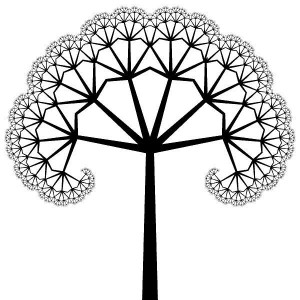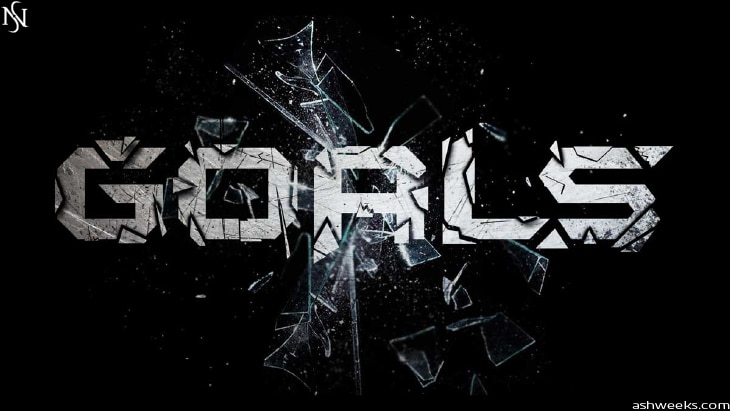What is the meaning of life? What is your purpose? Why are you here? Are you here for a reason? Is there a divine entity looking down on you? What happens after you die?
The way you answer these questions determines the overall context for everything you do in life. It is not often that people sit down and seriously consider these questions but I’m here to tell you that it’s worth putting in the time and effort to figure it out, and I will tell you how I have gone about it.
This is part three of a seven-part series on how to find purpose and direction in your life:
Part 1: Why It’s Worth Knowing
Part 2: Overview
Part 3: Know Yourself
Part 4: Build Strong Foundations
Part 5: How Should We Live?
Part 6: Why Purpose Doesn’t Interest You yet (and When It Will)
Part 7: Discovery
Know Yourself
A “purpose” is a very self-defined concept and relies heavily on the individual in question. The first step to figuring out a path to take in life is to understand how you got to where you are today, and what defines you.
What Is Your Story?
At the 2014 National Student Leadership Forum (NSLF), we were split into groups of 10 and these groups were used to coordinate activities on a smaller level than those involving all forum delegates. One such activity required us to take turns over the course of the weekend to describe to the rest of the group our background and what had influenced us to become the person we were at the time. Eight of the other nine people in my group were total strangers to me and I had to sum up who I was and what made me that way. When would you have ever been asked to do something like this? I hadn’t, but it was a worthwhile task.
What made it so useful was that (1) I wanted to be accurate — I didn’t want to misrepresent who I was or fail to describe the aspects of myself that I felt were important; (2) I had to speak aloud to another person — I couldn’t hide in vague ramblings in my own thoughts; and, (3) these people knew nothing about me except my general personality since meeting them a day or two prior — I had zero reason to rely on assumed knowledge and this required me to be specific and detailed. Most of this I covered in my journey.
If you are serious about discovering more about what you want in life, take the tasks I set you in this series. Firstly, open up a blank document or pull out a blank sheet of paper. List the big events, people, actions, or circumstances that shaped and influenced you to make you the person you are today.
What was your upbringing like? What did you spend your time on? Who did you spend it with? Was your family religious? Really into sport? What about your childhood, primary/elementary school days, life outside of school, secondary school, family life, work life? Any life-changing events? Anything that shocked you, scared you, angered you?
What aspects of your personality were affected? What key parts of your skills, talents, experience, and outlook on life were as a result of the things that happened in the past?
Now, put all of your notes into a story, as if you had to give a speech to a stranger who knew nothing of your background, just as I had to at the NSLF. This will go a long way into helping you truly know yourself, what you value, and what is important in your life.
Why Do You Do What You Do?
When I was first hit by a wave of confusion regarding what I was doing in life, I had to get away from my routine, from distraction, and just think. I carried a binder book of empty pages and a pen and walked to one of the park areas near my house. I left my phone at home.
I still have those notes with me. The questions in my head were: What do I want in life? Why do I want it? And also: Why am I here? What is the meaning of life? What is my purpose? Who am I?
I attempted to address the first two questions by working in reverse. I didn’t have the answer to ‘What do I want?’ from which I could determine my future actions, but I did have my current actions and they would be related to what I currently wanted. These are the actions you can take to follow what I did:
- List the main activities you spend your time on (e.g. relationship, job #1, job #2, schooling, etc)
- Under each activity, answer the question ‘Why am I doing this?’ This is likely to have more than one answer — write each on a separate line (e.g. job #1: I want an income)
- Now, under each of these reasons ask ‘Why is this important?’ (e.g. to allow me to get a loan from the bank)

Recursively asking ‘Why?’
- Keep asking that question, again and again, until you hit something at the foundation: something that, if you asked ‘Why?’ one more time, would be because it adds happiness or meaning to your life. (e.g. to allow me to invest in property; to be able to grow wealth through renovations and developments; to reduce my reliance on a wage for my lifestyle; to have the freedom to live the way I want to live; freedom is something I value and is very important to me)
- Now, take all of the foundation-level motivations and put them into their own list
- It is likely that the list is quite long. You might have variations on the same thing — remove duplicates
Patterns
Lastly, take Your Story and your list of foundation-level motivations and look for patterns. This is where the real insight occurs. For me, I took note of how in my journey I was very competitive, always trying to win at competition, beat the kids my age or older in games, or beat my own score in anything from video games to athletics. I had foundation-level motivations like ‘health and longevity’ and ‘improvement’. Seeing everything laid out together made me realise that there was a pattern of self-improvement and personal development. After noticing this, I realised that theme applied to almost everything I did in life: I train to get healthier, stronger, faster; I work to be wealthier, I studied to be smarter, I was constantly looking at metrics that I could use to measure my progress, to know that I was improving myself or my position. Personal development, as you will learn, is a core part of my purpose — not improving or bettering myself or others in one way or another goes against what it means to live a fulfilling life. If personal growth was a religion, not-improving is sinful to me.
The insights that you find will come about more easily and in greater abundance the more time and effort you put into following the above tasks. No one can tell you what you want from life. Only you can take notice, ask yourself the questions, and truly know yourself.
This is part three of a seven-part series on how to find purpose and direction in your life:
Part 1: Why It’s Worth Knowing
Part 2: Overview
Part 3: Know Yourself
Part 4: Build Strong Foundations
Part 5: How Should We Live?
Part 6: Why Purpose Doesn’t Interest You yet (and When It Will)
Part 7: Discovery





